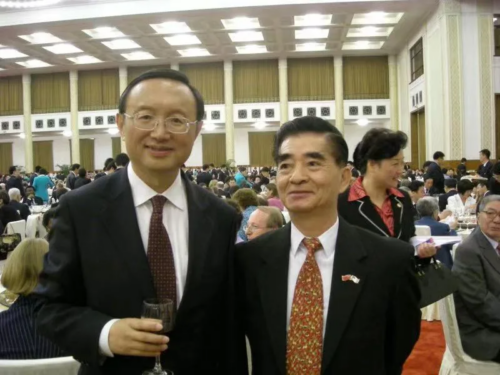The Chinese start-ups working on developing smart cities
China’s first tier cities now feature a range of ‘smart city’ technology, including 3D spatial planning and digital city twins, smart pipes for water and heat conservation, and early warning rail and subway monitoring systems.

Last week, the 15th China Smart City Conference took place over two days in Beijing. The theme of the event was “Promoting data sharing and integration, serving the people full-time.” The conference included an award ceremony for pioneering smart city apps and software.
Freedo 北京飞渡科技 was one of the companies that received an award. The company’s founder, Sòng Bīn 宋彬, gave an acceptance speech in which he discussed Freedo’s self-developed platform as a service (Paas) application and database, a 3D computational engine that uses artificial intelligence (AI) to integrate real and virtual data for developing digital twin models of cities.
Such digital twins can be used to model and plan different types of urban spaces, and manage resource usage, for example water supply and conservation.
Smart and super smart cities
Freedo is one of a range of new start-ups in China that are developing apps and software for managing smart cities. Technically, a smart city — or a digital, intelligent or wired city — is an urban area in which technology and sensors are used to collect data, which is then applied in real-time to manage the city’s utilities and resources, such as by improving the quality of infrastructure and services, and reducing waste, energy consumption, and pollution. Smart cities are based on key technology like 5G and the Internet of Things — for machines, vehicles, systems and devices to communicate with each other — and an ecosystem of software and data platforms to store and process information in real-time.
The use and management of renewable energy is a key component of smart cities. This includes the application of smart grids, green construction technology, lithium-ion batteries for energy storage, and smart waste management and water conservation systems. Other key focus areas are smart and autonomous transportation and traffic management, and data-driven public health management.
In China, the scale of digital infrastructure has developed rapidly. Per an interview with a director of the Cyberspace Administration of China published last week, China already has:
- 29 “dual-gigabit” cities with wired and wireless gigabit broadband (this number is expected to rise to 100 cities by the end of 2023);
- 1.85 million 5G base stations with 450 million 5G mobile users;
- 5.2 million standard data center racks, 19 million data center servers, and storage capacity of 800 exabytes.
The concept of smart city development has been incorporated in the 14th Five Year Plan (2021 to 2025) development goals of nearly all Chinese provinces and regions. These include delivering smart governance and services: China’s national e-government service platform has more than a billion users and more than 10,000 standardized services.
Unsurprisingly, China’s smartest cities are its first tier cities, especially Beijing, Shanghai, and Shenzhen. The latter city in particular has taken the lead in releasing specific plans for constructing a smart city and developing digital governance.
In an interview published in July 2002, the vice chairperson of Deloitte China, Shī Néngzì 施能自, stated that China’s smart city development is now transitioning to the “super smart city” stage in which cities will have “ AI city brains” that can analyze vast amounts of data instantly and implement decisions on services and city management in real-time. Super smart cities will also be able to intelligently connect suppliers with consumers, and provide citizens with more diverse consumption scenarios.
China news, weekly.
Sign up for The China Project’s weekly newsletter, our free roundup of the most important China stories.
Smart city projects around China
“Smart pipes” in Chongqing
As of the end of June, 36 districts in Chongqing have been connected to a comprehensive urban pipeline management network that makes use of a digital twin command center. The system allows for real-time management of the pipe network with the ability to identify leaks. The system has also been installed in the cities of Wuxi (Jiangsu Province) and Shijiazhuang (Hebei Province), and is being rolled out to other cities across China.
Beijing Smart City 2.0
An official from the Beijing Municipal government stated at a press conference on September 20 that the city has now transitioned to the Smart City 2.0 stage, which includes:
- The Beijing International Data Exchange platform that incorporates 333 data trading entities controlling 773 million transactions.
- The Beijing High-level Autonomous Driving Demonstration Zone, which is being expanded to cover 500 square kilometers (193 square miles) of the city.
- An urban spaces pilot computing and design system to manage a million square meters (10.76 million square feet) in the Haidian District.
- And currently in development: Digital community governance models, industry-research integrated blockchain systems, and a metaverse experience center.
Beijing smart city start-up program in Fengtai
The Fengtai District of Beijing has implemented a smart city incentive program to attract high-tech companies with subsidies, and the district now claims to have 1,900 high-tech enterprises. On September 22, the district government held a special press conference that highlighted several smart city start-ups operating in the district:
- Jiu-Yi Technology 久译科技 has installed an early warning system in the city’s rail and subway lines that monitors passenger flows, equipment, and facilities, and which can detect safety issues such as waterlogged platforms and dead bodies on the tracks.
- Yunlu Technology 北京云庐科技 has installed a heating pipe network intelligent monitoring platform that can automatically detect leaks and conduct smart temperature adjustments.
- HES Group 北京豪尔赛智慧城域科技 is developing an immerse tourism experience in Beijing with installations of 3D LED screens, interactive displays, and colored buildings.
- All in Tech 傲林科技 has developed an industrial metaverse application that the company claims can transform any industrial problem into manageable datasets.
Smart city decarbonization
On September 21, Terminus 特斯联, which describes itself as an Artificial Intelligence of Things (AIoT) company, launched the latest version of its urban decarbonization operating system for smart cities to comprehensively monitor key indicators like temperature and humidity, manage energy supply and consumption, and optimize energy usage via a digital twin system.
The takeaway
There is a great deal of jargon connected to smart cities, and a lot of speculative investment. It’s also unclear to what extent the new technologies will actually make life more convenient for residents as opposed to providing the government with ever more invasive techniques to surveil and control citizens.






